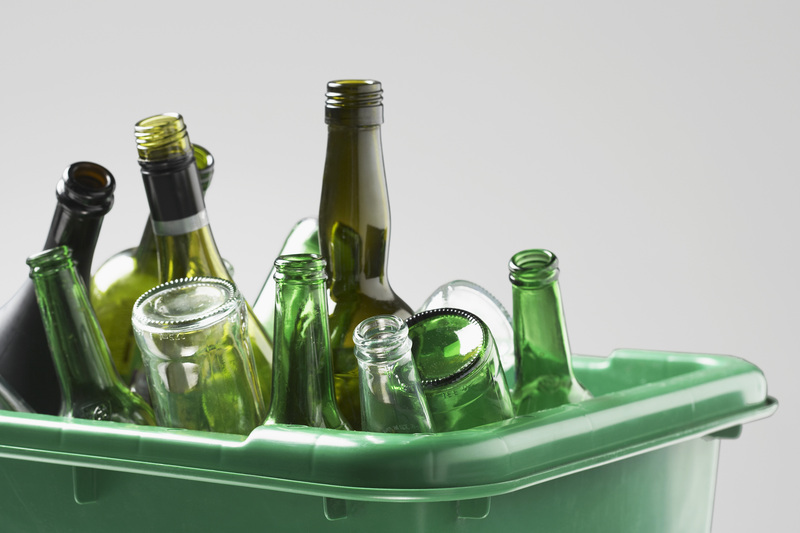From Clutter to Conservation: Pot and Pan Recycling Explained
Are you tired of old pots and pans taking up valuable space in your kitchen? Pot and pan recycling is an overlooked but essential way to declutter your home and make a positive impact on the environment. In this comprehensive guide, we'll walk you through everything you need to know about recycling your old cookware. From understanding what materials can be recycled, to practical steps for repurposing and responsible disposal, this article will transform your clutter into conservation--one pot and pan at a time.

Why is Pot and Pan Recycling Important?
The kitchen is the heart of every home. Over time, however, our cabinets and drawers fill with outdated, scratched, or unusable cookware. Unfortunately, many people simply toss their unwanted kitchenware into the trash. This contributes to overflowing landfills and wasted resources.
- Environmental Preservation: Millions of tons of metal end up in landfills annually. Stainless steel, aluminum, and copper from cookware can be recycled almost indefinitely.
- Resource Efficiency: Recycling metal uses less energy than mining and refining new ores. It also helps conserve valuable natural resources.
- Economic Benefits: Recycling programs create jobs and lower production costs for manufacturers who use recycled metals.
- Reducing Household Clutter: Freeing up that much-needed kitchen space can bring a sense of organization and calm to your home.
When you recycle your old pots and pans, you are taking a simple yet impactful step toward waste reduction and environmental conservation. But where do you start?
What Types of Pots and Pans Can Be Recycled?
Common Materials Found in Cookware
- Stainless Steel
- Aluminum
- Copper
- Cast Iron
- Non-stick (Teflon-coated) Pans
Not all pots and pans are created equal when it comes to recycling. Metal-based cookware (such as stainless steel and aluminum) is highly recyclable. However, certain coatings or composite materials can complicate the process. Here's a breakdown:
Recyclable Cookware
- Stainless Steel: Easily recyclable and often accepted by municipal recycling centers and scrap metal yards.
- Aluminum: Like steel, aluminum pans are widely accepted for recycling. Make sure to remove any plastic handles if possible.
- Copper: Very valuable in scrap markets. Thick copper-bottomed pots are often reprocessed into new metal products.
- Cast Iron: Highly desirable by scrap metal recyclers and can also be restored or repurposed for continued use.
Challenging (But Not Impossible) to Recycle
- Non-stick and Teflon-coated Pans: The PTFE or Teflon coating must be removed before recycling. Some specialty recyclers will accept them, but check with your local facility first.
- Glass Lids or Ceramic-Coated Pans: Most curbside recycling programs do not accept these materials due to their melting temperatures and chemical properties.
Tip: Check with your local scrap or recycling center before disposing of composite cookware, as rules may vary by region.
How to Prepare Your Old Pots and Pans for Recycling
Proper preparation is essential to ensure your old cookware is accepted for recycling and does not contaminate other recyclable materials.
Steps to Prepare Cookware for Recycling
- Clean Your Cookware: Wash off any food residue or grease. This is especially important for scrap metal recyclers.
- Disassemble If Possible: Remove non-metal parts such as plastic or wooden handles and lids. Most recycling plants cannot process these materials with metal.
- Sort by Material: If you have different types of metal pots and pans, keep them separate. Some facilities have different recycling processes based on the metal.
Note: Do not attempt to remove non-stick coatings yourself unless the recycler specifically requests it, as it often requires specialized equipment and safety procedures.
Where Can You Recycle Old Pots and Pans?
Whether you are recycling a lone rusty skillet or a full set of mismatched saucepans, there are several recycling options for pots and pans:
Municipal Recycling Programs
- Some curbside recycling programs accept metal cookware, but always confirm with local guidelines.
- If not accepted curbside, municipal waste and recycling centers often have scrap metal collection bins.
Scrap Metal Yards
- Scrap yards are the best option for recycling large or heavy items such as cast iron pans and copper pots.
- They may even pay you by the pound, especially for high-value metals like copper and brass.
Specialty Recycling Programs
- Some "hard-to-recycle" centers accept non-stick and Teflon-coated pans for a small fee.
- Check for local e-waste or specialty recycling drives, which sometimes collect kitchenware materials not usually taken elsewhere.
Retail Take-Back Programs
- Certain kitchenware retailers offer trade-in or recycling initiatives. For example, some national chains run annual pot and pan recycling events, incentivizing customers with discounts.
Donation and Reuse
- If your cookware is still functional, consider donating to thrift stores, shelters, or community groups before recycling.
- Upcycling is a creative way to give cookware a second life. Think planters, kitchen art, or storage organizers!
Always call ahead or check online to confirm your chosen facility's policies regarding pot and pan recycling.
Beyond Recycling: Reusing and Repurposing Old Cookware
While recycling is vital, reuse and repurposing can extend the life of your old pots and pans and support the principles of a circular economy.
Creative Ideas for Repurposing Pots and Pans
- Garden Planters: Drill holes in an old pot for drainage and plant flowers, herbs, or succulents for a whimsical garden display.
- Wall Art: Arrange pans of varying sizes and styles as creative kitchen wall decor.
- Storage Solutions: Use deep pots to organize tools, utensils, or even craft supplies.
- Serving Trays or Bowls: Large pans can serve as rustic trays for backyard gatherings.
- Toy Storage: Robust pans make fun bins for organizing children's toys or art materials.
Repurposing not only diverts objects from landfill but also adds personality and flair to your living space.
Common Questions About Pot and Pan Recycling
Do I Need to Remove Handles, Knobs, or Plastic Parts?
Yes, if possible. Metal recyclers typically require you to remove obvious non-metal components. This improves processing efficiency and recycling rates.
Can Non-Stick or Teflon-Coated Pans Be Recycled?
Most local curbside programs do not accept non-stick pans due to chemicals in the coating. However, specialized scrap yards or recycling programs may accept them after handling the coating safely.
Is There Any Value in Recycled Cookware?
Absolutely. Scrap metal prices fluctuate, but steel, aluminum, and copper pans may earn you a few extra dollars if sold to a scrap dealer, especially in bulk.
Are Old Cookware Sets Considered Hazardous Waste?
Generally, no. However, if your pan contains certain harmful coatings that can flake or leach chemicals, check with your local hazardous waste program for proper disposal advice.
What About Antique or Collectible Pans?
Before recycling, research your cookware for potential value. Brands like Griswold, Wagner, and early Le Creuset pieces may be highly collectible and worth selling or donating.
Pot and Pan Recycling Around the World
Different countries and cities may have unique approaches to recycling kitchenware:
- The United States: Scrap metal recycling is widespread, but municipal acceptance of old cookware varies.
- United Kingdom: Many local councils collect metal items at the curb or at recycling centers.
- Australia & New Zealand: Dedicated metal bins at transfer stations handle old pots and pans.
- Europe: Strict policies on landfill encourage more extensive recycling programs for all metals, including cookware.
If you're unsure about your area, consult municipal websites for recycling locations and programs specific to cookware.
Tips for Choosing Sustainable Cookware in the Future
One way to minimize future waste is by investing in high-quality, sustainable cookware. Here's what to look for:
- Durable Materials: Stainless steel, uncoated cast iron, and copper last for decades.
- Modular & Repairable Design: Choose pans with replaceable handles, lids, or knobs.
- Recycled Content: Some manufacturers now offer pots and pans made partly or entirely from recycled metal.
- Manufacturer Take-Back Programs: Support brands that help reclaim and recycle their own products.
- Minimal or No Chemical Coatings: Avoid cookware with potentially hazardous non-stick coatings, which can complicate recycling and disposal.

The Environmental Impact: Why Every Pan Counts
Recycling a single pot or pan may seem like a drop in the ocean, but every recycled item reduces demand for new metal mining--which is energy-intensive and damaging to ecosystems. Here are some compelling facts:
- Energy Savings: Recycling aluminum saves up to 95% of the energy required to produce new aluminum from ore.
- Reduced Greenhouse Gases: Lower energy use means fewer harmful emissions released into the atmosphere.
- Landfill Diversion: Keeping bulky metal items out of landfill preserves space and reduces soil and water contamination risks.
- Supporting Circular Economies: Using recycled metals makes production more sustainable and cost-effective over time.
When you recycle pots and pans, you help close the loop between consumption and conservation.
Final Thoughts: Declutter Responsibly and Conserve Resources
Transforming your kitchen clutter into environmental conservation is easier than it seems. Pot and pan recycling allows you to responsibly dispose of unwanted cookware, conserve resources, and even get creative with upcycling. Whether you drop your old pans at a scrap yard, participate in a store's take-back program, or donate items for reuse, every action counts.
By understanding how to recycle pots and pans, what materials are accepted, and where you can dispose of them safely, you play a vital role in promoting a cleaner, greener planet. Next time you upgrade your cookware, make recycling or reusing your first step--from clutter to conservation.
Ready to start? Search for local pot and pan recycling centers or donation points today, and be part of the solution for a sustainable future!
